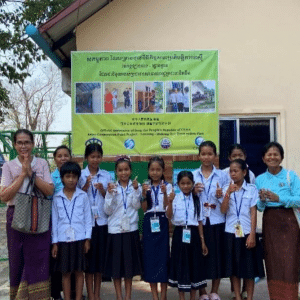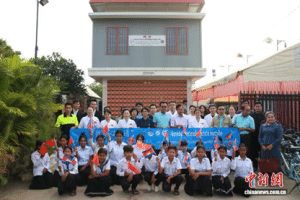This month saw both the Ministry of Civil Affairs (MOCA) and the trailblazing province of Guangdong moving ahead with new initiatives.
At the national level, the Ministry of Civil Affairs (MOCA) continues to look for ways to promote reforms in the public interest sector. In April, the Ministry of Civil Affairs issued a draft of supplementary regulations entitled “Some Regulations Concerning the Standardization of Foundation Behavior” for public comment. In the public comment period, a number of foundation leaders and scholars praised the regulations for clarifying how foundations should receive and use donations, allowable methods for increasing the value of foundation assets, and information disclosure standards. But they were also critical of certain clauses in the regulations. One was the clause that restricted foundations from giving to for-profit organizations since, it was pointed out, and many nonprofit organizations in China are actually registered as businesses. Another was the clause specifying that foundation staff salaries and office administrative costs be kept under 10 percent of foundation expenditures, which was cited as being overly restrictive and preventing foundations from attracting qualified, professional staff.
According to the Minister of Civil Affairs, Li Liguo, these supplementary regulations are meant to clarify existing regulations and documents such as the information disclosure guidelines issued by MOCA in December of 2011, and the 2006 Measures for the Information Disclosure of Foundations. They can be seen as another effort by MOCA to respond to the recent media stories and public criticism over various scandals and problems in the charitable sector by taking faster action in promoting greater openness and transparency in the sector. These initiatives should also be seen in the backdrop of the 12th Five Year Plan which calls on government agencies to undertake “social management innovations” to better harness the power of social organizations. Minister’s Li’s recent comment on May 8 about giving political and human rights NGOs equal treatment can also be seen as part of MOCA’s public campaigning. In other words, his comment was more rhetorical than substantive and was met with skepticism from those in the NGO community.
In Guangdong, the provincial capital of Guangzhou announced potentially pathbreaking fundraising regulations that will go into effect on May 1 of this year. Under the new regulations, social organizations (社会团体), civil non-enterprise units (民办非企业) and nonprofit public institutions (事业单位) to fundraise publicly. The first two categories are legal NGOs registered with Civil Affairs. Special mention was made of organizations supporting the elderly, disabled, solitary and poor individuals, and disaster relief. These regulations will have the effect of breaking the monopoly that GONGOs, in particular public fundraising foundations, have had on public fundraising in China.
The Guangzhou Civil Affairs bureau sees this regulation as a major step in promoting a more open public welfare system rocked by scandals that hit GONGOs last year. According to local authorities, the idea is to create more market competition between public interest organizations.
Some caveats apply. The principle of territoriality applies to these regulations. Specifically, the Guangzhou regulation only applies to organizations registered in Guangzhou and limits fundraising to Guangzhou municipality. Authorities also revealed that a similar regulation for Guangdong province is forthcoming.
In terms of process, the Guangzhou fundraising regulations specify that the organization will have to submit a fundraising proposal and if approved, will have a three month period in which to fundraise for a project. If the organization needs a longer period of time, an extension can be applied for.



